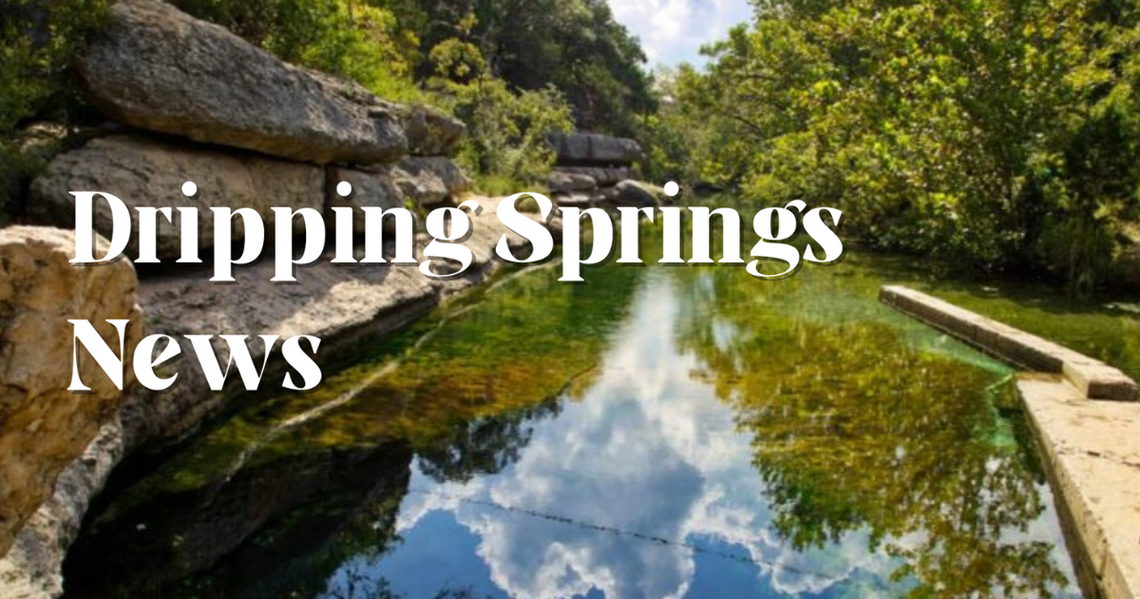DRIPPING SPRINGS — Residents, environmental groups and activists who have been against a proposed outdoor concert venue in Dripping Springs will now get to plead their case in a state hearing.
The venue — Rockingwall Ranch — is a proposed 5,000-seat amphitheater to be located approximately 0.25 mile east of Crumley Ranch and Fitzhugh roads in Dripping Springs. Since it was initially proposed in 2022, the project has faced pushback from community members who live nearby and others, noting multiple concerns, including noise and light pollution, increased congested traffic and impacts on the environment.
The California-based development behind the project, Blizexas LLC, applied for a permit through the Texas Commission on Environmental Quality (TCEQ) to authorize the disposal of treated domestic wastewater of up to 12,000 gallons per day on the property, near Barton Creek. The 12,000 gallons of treated effluent would be authorized to be land applied by subsurface area drip dispersal system irrigation to 2.75 acres at a rate of 0.1 gallons per square foot per day, according to the application.
The developer also proposed to operate a wastewater treatment facility that will serve the Rockingwall Ranch property.
Those who are against the project claim that the disposal of treated domestic wastewater, as it is currently proposed, could ultimately threaten the groundwater quality, while also impairing the local wildlife and their habitat.
“When there is any type of overflow from this drip irrigation system, whether it be from rain, excess usage [or] worn away soil, there are two main waterways in which it exits the septic fields,” resident Carrie Napiorkowski told the News-Dispatch in 2023. “One is through Shield Ranch, which is a 6,400-acre nature preservatory that butts up against this property. It drains through the property and enters right into Barton Creek. The other exit is directly down Fitzhugh Road that runs down the road and then, also ends up in Barton Creek.”
Back in March, TCEQ found that Blizexas’ application “meets the requirement of applicable law,” stated in a letter by executive director Kelly Keel, which did not authorize the construction or operation of any proposed facilities. The decision was then sent to be considered by the commissioners at a public meeting and allowed for opponents to ask for reconsideration or for a contested hearing regarding the project through the State Office of Administrative Hearings (SOAH).
According to its website, the agency received 80 hearing requests and 14 requests for reconsideration. Online TCEQ records show that Blizexas asked for the agency to deny all of the hearing requests because, according to the developer, the individuals who submitted them “do not even attempt to explain how they have a personal justiciable interest.”
Though, according to TCEQ, those who can obtain a contested case hearing would be those who are personally affected by the permit decision; a person “who is concerned about the permitted activity, but will not be affected by it any differently than others is not eligible for a hearing,” the commission stated.
At its Aug. 6 meeting, the commission unanimously voted to grant the contested case hearing requests of the Greater Edwards Aquifer Alliance, Fitzhugh Neighbors, Save Our Springs Alliance, Hays Trinity Groundwater Conservation District, Keven Fleming, Susan Munns, Carrie and Vic Napiorkowski, Shield Ranch, Richard and Tracey Sorenson and Steve Warntjes.
In her request for a contested case hearing, Cynthia High, who is a part of Fitzhugh Neighbors, said that she, along with many others, wish for the water to remain uncontaminated for the next several generations. She said the proposed site sits over a bed of limestone that allows water to percolate into the aquifer below, contaminating the drinking water in the area’s wells, which many depend on.
“This development would ruin the beautiful Hill Country and its environmentally-sensitive lands and waters, beginning with the first step of clearing the water filtering grasses, brush and trees that balance out rainfall, so there is less flooding in the area and rain and water are cleansed,” High wrote.
Another requestor, the Hays Trinity Groundwater Conservation District, said that it recognizes the developer’s need to dispose of treated effluent and favors their practice of land application and/or reuse. However, because of the “karst geology of the region, and the interchange between surface and groundwater in losing streams and other land based recharge features, land application must be executed with extreme care and with thorough knowledge of the land characteristics,” said Charlie Flatten, general manager.
The commission denied all other hearing and reconsideration requests, along with referring the application to SOAH.
The approved contested hearings have not been scheduled yet.
To learn more about Blizexas’ application, and the hearing/reconsideration requests, visit bit.ly/4fz7DIZ.










